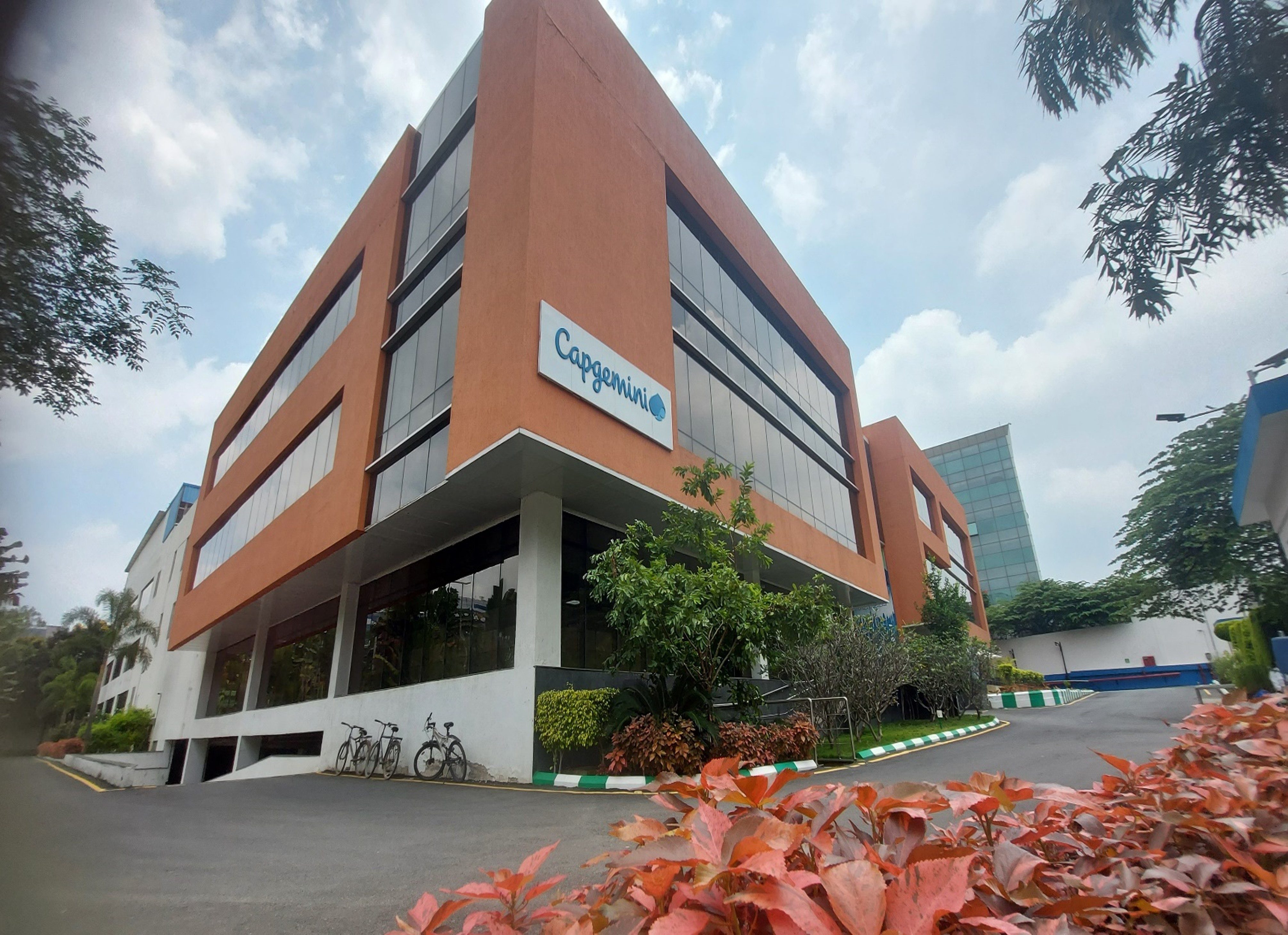
Capgemini Backs Bold Climate Action With New Carbon Removal Deals
Published by Todd Bush on May 18, 2025
A major leap for tech and the planet
Capgemini, the global tech and consulting powerhouse, is doubling down on its climate commitment by signing groundbreaking carbon dioxide removal (CDR) deals with two climate tech pioneers: Climeworks and Charm Industrial. These agreements mark a big step forward not just for Capgemini's net-zero goals, but for the future of the carbon removal industry itself.
Under the new partnerships, Charm Industrial will remove 16,500 tonnes of CO2, while Climeworks will handle 13,000 tonnes using its cutting-edge direct air capture (DAC) technology. This move aligns with Capgemini’s pledge to neutralize 10% of its final residual emissions using high-quality CDR solutions.
>> RELATED: The Companies Leading the Charge in Direct Air Capture

Supporting pioneers who are changing the game
These aren’t just one-off purchases. Capgemini is helping build long-term infrastructure to ensure carbon removal becomes scalable, reliable, and economically viable. As Charm Industrial put it, "Capgemini gets that. They’re not just buying 16,500 tons of removal—they’re investing in the infrastructure of climate stability."
That investment will help scale Charm Industrial’s pyrolysis fleet—a mobile, modular setup that turns plant waste into bio-oil, which is then injected underground for permanent storage. The approach has the added bonus of supporting wildfire risk mitigation, especially as operations expand in wildfire-prone areas like Colorado.
Meanwhile, Climeworks has been making headlines for hitting a major efficiency milestone: a 50% energy reduction in their latest Gen 3 DAC systems. This improvement means pulling carbon from the atmosphere just became far more energy-efficient and commercially feasible.
Why these deals matter
Carbon removal isn’t just another sustainability buzzword. It’s increasingly seen as a non-negotiable tool for achieving real net-zero. According to the Intergovernmental Panel on Climate Change (IPCC), even the most ambitious emission reduction scenarios will require gigaton-scale carbon removal to counteract unavoidable emissions.
What sets the Capgemini deals apart is that they target durable carbon removal—not just offsets from planting trees, but tech-backed strategies that ensure CO2 is locked away for centuries or longer. These are precisely the kinds of projects climate scientists say we need more of.
CDR.fyi, a leading tracking platform for durable carbon removal, confirms these are the first such deals registered by Capgemini. It’s a public step toward transparency and accountability in a sector that’s often clouded by vague claims.
A long-term net-zero strategy
Capgemini was one of the first companies to have its net-zero targets validated by the Science Based Targets initiative. With a goal to reach net-zero by 2040, the company is taking a layered approach: combining direct emissions reductions, nature-based solutions like reforestation, and now, high-impact tech solutions like DAC and bio-oil sequestration.
The new CDR partnerships show how the company is evolving from climate pledges to climate action. And they send a signal to other global players: the time to invest in carbon removal is now.
Vincent Moreau, climate strategy lead at Capgemini, noted in a recent interview, "We believe in the urgent need for scalable, permanent carbon removal. This is about supporting the pioneers and technologies that will shape the future."

>> In Other News: Infinium Will Deploy Electric Hydrogen’s Electrolyzer Plant at Large-scale Efuels Facility in Texas
Scaling carbon removal: the road ahead
While it’s easy to applaud announcements like these, the real challenge lies in turning pilot-scale projects into gigaton-scale solutions. That’s why early adopters like Capgemini play such a vital role.
For Charm Industrial, funding like this means it can fast-track manufacturing and expand field deployment of its pyrolyzers. These machines are designed to be mobile and mass-manufacturable—a key feature that makes Charm’s approach scalable across regions.
For Climeworks, the reduced energy requirements of Gen 3 DAC could lower operating costs and unlock bigger, faster deployments across more sites. As they scale, the price of carbon removal through DAC is expected to drop, opening the door for broader adoption by both public and private sectors.
A growing movement of climate investors
Capgemini joins a growing list of forward-looking companies making substantial CDR investments. Microsoft, Shopify, and Stripe have already committed millions to support early-stage carbon removal efforts, knowing that market maturity depends on customers willing to pay upfront.
Unlike traditional offsets, durable removal has the benefit of being measurable, verifiable, and—in many cases—permanent. That’s the kind of certainty the planet needs as it races to stay within safe warming limits.
As Climeworks co-founder Christoph Gebald has said: "There is no silver bullet for climate change, but permanent carbon removal is a key part of the solution."
Looking forward
This move by Capgemini is more than a line item on a sustainability report. It’s a clear signal that the future of corporate climate action will be built on bold partnerships, smart investments, and science-backed solutions.
And as tech companies, climate startups, and global industries continue to link arms, one thing becomes clear: carbon removal isn’t optional anymore—it’s foundational.
Subscribe to the newsletter
Daily decarbonization data and news delivered to your inbox
Follow the money flow of climate, technology, and energy investments to uncover new opportunities and jobs.
Companies
Latest issues
-
This $4.1M Deal Could Change Carbon Capture's Playbook
Inside This Issue 🗜️ CarbonQuest Lands $4.1M Alberta Deal on Gas Compressors 🛡️ CADO, 123Carbon, and Assure SAF Registry Join Forces to Tackle SAF Integrity Gaps ✈️ ISCC, OMV, and Airbus Partner t...
-
Can Koloma Crack Iowa's Billion-Year-Old Secret?
Inside This Issue ⛏️ Iowa's Hydrogen Rush: Can Koloma Strike Gold Before Rules Kick In? ✈️ Bentley Commits to Use 100% Sustainable Aviation Fuel for Car Airfreight 🌬️ Minister Parrott Provides Upd...
-
$47M Just Poured Into This SAF Producer
Inside This Issue 💰 LanzaJet Announces $47M in New Capital and First Close of Equity Round at $650M Pre-Money Valuation 🚢 Maersk's Ethanol Bet Could Reshape U.S. Fuel Markets 🪨 Canada Nickel and t...
Company Announcements
-
RCJY and Climeworks Deepen Partnership to Advance Large-scale Direct Air Capture in Saudi Arabia
Key takeaways: Under the guidance of the Ministry of Energy, the Royal Commission for Jubail and Yanbu and Climeworks have signed a Memorandum of Understanding to expand their collaboration on de...
-
CHARBONE Confirms New UHP Hydrogen Orders and its First UHP Oxygen Order in the United States
Brossard, Quebec, February 25, 2026 – CHARBONE CORPORATION (TSXV: CH; OTCQB: CHHYF; FSE: K47) (“CHARBONE” or the “Company”), a North American producer and distributor specializing in clean Ultra Hi...
-
Climeworks Establishes Canadian Headquarters in Calgary
Calgary, Alberta, February 20, 2026 — Climeworks, a global leader in commercial carbon removal, has established its Canadian headquarters at Calgary’s ETC, one of Alberta’s leading hubs where start...
-
MIAMI, Feb. 24, 2026 /CNW/ - Power Sustainable Infrastructure Credit ("PSIC") recently closed an $85M senior secured financing for Sagepoint Energy ("Sagepoint"), a vertically integrated renewable ...
